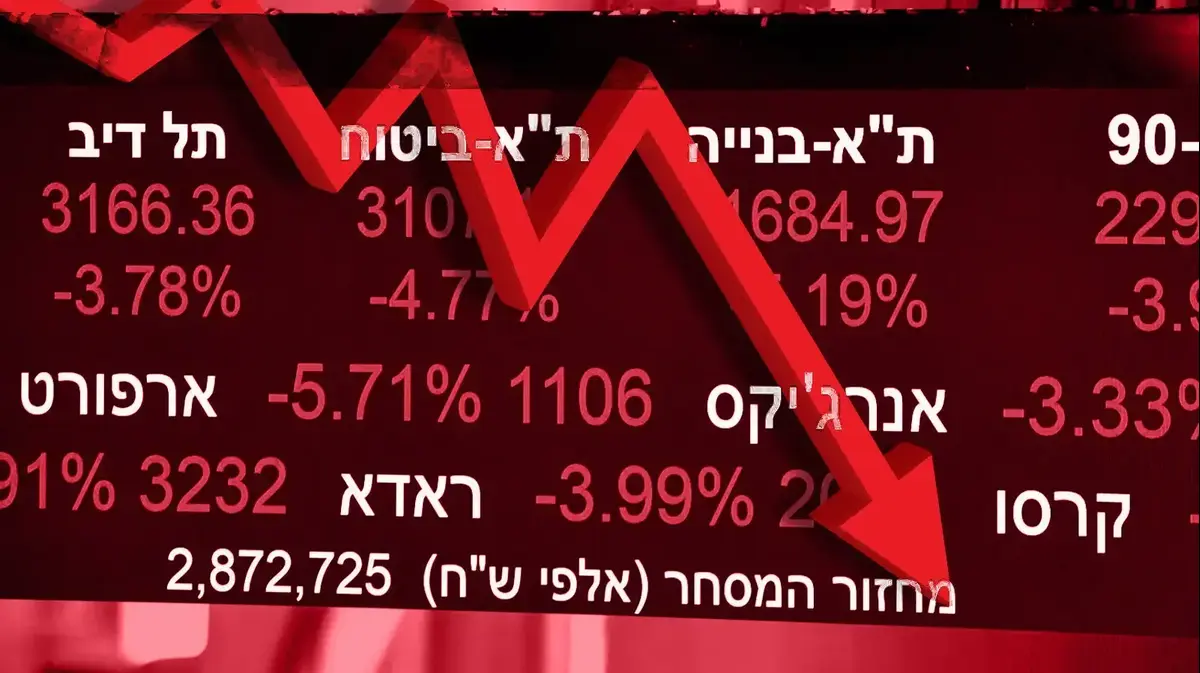Increasing prices:
Tonight at 18:30, the Central Bureau of Statistics is expected to publish the consumer price index for May, which is expected, according to most forecasts, to rise by 0.7%.
This increase will lead the rise of the index, looking at the last 12 months, to a level between 4.3% and 4.4% - a record of more than 11 years.
Among the items that are expected to lead to the rise in the index - food prices, travel abroad and the seasonal rise in clothing and footwear prices.
It will also be interesting to follow the rental clause, which constitutes about a quarter of the consumer price index.
In recent days, the public discourse around rental prices has heated up - while many Israelis are lamenting that homeowners are currently demanding tens of percent rent increases, the CBS 'official figures point to a much calmer picture - a mere 1.5% rise in the two-month rental index ending in April.
Two days ago, Finance Minister Avigdor Lieberman also addressed this issue, saying: "I do not intend to run the economy according to a discourse on social networks. Even if they (CBS, SG) were wrong, it is difficult for me to accept that there are such increases on a national scale. "It's important to make informed and serious data decisions."
"World story"
And back to the price index - although a 0.7% rise is considered relatively high for May, some analysts do not rule out a sharper rise than this, following the publication of higher-than-expected inflation data in the US and Europe. "A large part of inflation is explained by imported inflation, it's a world story," says Ofer Klein, head of the economics and research department at Harel Insurance and Finance, in a conversation with Israel Today.
According to Klein, if the index is indeed surprisingly upward in Israel as well - it is not inconceivable that in three weeks the Governor of the Bank of Israel will raise the interest rate by a sharp rate of 0.5%, and not by 0.25%.
The "imported inflation" that Klein is talking about stems first and foremost from the sharp rise in the price of oil, following the war between Russia and Ukraine.
Oil, which has already reached a level of $ 125 per barrel, has caused fuel prices to rise in Israel and around the world, and as a result - to exacerbate inflationary pressures.
The disturbing thing is that experts do not expect the price of oil to fall in the near future.
For example, the chief economist of Bank Leumi, Dr. Gil Michael Befman, predicts that the price of oil will continue to rise in the third quarter of this year as well: The excess demand in the market.
"However, the expected increase in China's demand may offset the impact of this increase, and support a further rise in the price of oil during the third quarter of 2022."
The second reason for the jump in inflation around the world is a rise in the prices of agricultural commodities, such as wheat and corn, and commodities used in industry, manufacturing and construction, such as coal and steel.
All of these have soared at rates of tens and hundreds of percent since the beginning of the year.
Despite the worsening of inflation in Israel, it is still considered moderate compared to other developed countries.
Tonight, the US Federal Reserve (the Fed) is expected to raise interest rates on the dollar. Following the publication of higher-than-expected inflation data, estimates have risen that interest rates will rise by 0.75%. Of 3.5% in early 2023. This is a rate of increase that is considered very sharp.
"Imported inflation"
According to Chen Harzon, BDO's Chief Economist, "The fact that inflation is mainly imported inflation, combined with the economic slowdown, will oblige the Bank of Israel to reconsider interest rate policy, in order to avoid a state of stagnation (a situation where economic growth slows and unemployment remains high). "C) In the Israeli economy."
Were we wrong?
Fixed!
If you found an error in the article, we'll be happy for you to share it with us









